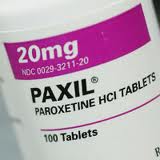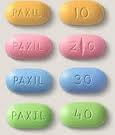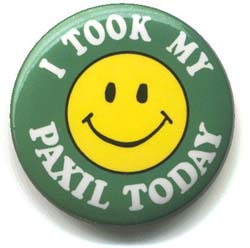Paxil Addiction
Is Paxil Addictive
Proper Paxil Doage to Prevent Addiction
Paxil, also known as paroxetine, is a popular and most prescribed medication under the SSRI (selective serotonin reuptake inhibitor) class. Serotonin, is a monoamine neurotransmitter that can be found in the central nervous system (CNS), platelets and the gastrointestinal (GI) tract, is the one responsible to help nerve cells to communicate messages in the brain so people would feel balanced. Paxil and other SSRIs help regulate the passing of messages, altering serotonin levels.
Like in any psychoactive drug (i.e. Aropax, Seroxat and Sereupin) available in the market, users fear the unknown possibility of dependence or addiction to Paxil. Knowing the side effects of taking Paxil and such, the most common inquiry would be: Is Paxil addictive?
Perhaps, the first thing to do is to understand what Paxil is for.
Paxil, an antidepressant, is considered to be one of the most prescribed in the United States, with more than $1 billion of accounted sales as of 2007. It is manufactured and distributed by GlaxoSmithKline (GSK), one of the leading pharmaceutical companies in the world.
Like most SSRIs, Paxil is used to treat depression, generalized anxiety disorders, obsessive-compulsive disorder (OCD), post traumatic stress disorder (PTSD), panic disorders, social phobias and premenstrual dysphoric disorder (PMDD). Seventy-five percent of users were reported to have lessened the symptoms of their disorders since they started using Paxil.
GlaxoSmithKline (GSK) marketed Paxil as non-habit forming. However, major inquests regarding the drug brought startling discoveries about the adverse Paxil side effects and the distressing withdrawalsyndrome and discontinuation symptoms.
The United States Food and Drug Administration (US FDA) has required GlaxoSmithKline (GSK) to market Paxil and other SSRIs with a black box warning, “the most serious type of warning in prescription drug labeling,” because of the numerous reports regarding Paxil side effects.
The Medicines and Healthcare products Regulatory Agency in the United Kingdom has warned people under 18 years old to avoid taking Paxil and other SSRIs because of the reported side effects.
Many inquests have been undertaken regarding Paxil. People were asked if Paxil is addictive. This question can be a bit misleading since to be addicted to a substance or drug suggests misusing or inappropriate dosage of Paxil or other SSRIs. Psychoactive medication is dosage-controlled by the patient’s doctor or physician. Being addictive to Paxil is an unlikely occurrence if intake is closely monitored by a doctor. Paxil is not addictive and it cannot be an addictive drug unless it is misused.
People should be aware of the truth about Paxil before taking it or before doctors recommend it to their patients.
So, why is there too much talk about Paxil and its addictive factor? Is Paxil for forever?
First of all, to better understand the issue, what is the real definition of addiction?
There are two types of addiction – substance related and behavioral addiction. Generally, addiction is the continued use of any mood altering substance that can have an adverse effect on a person’s body and mind and would have impaired control over psychological and physical behavior. Despite the negative consequences of the substance, the person under the influence continues to use for pleasure, a sense of gratification, relief and enjoyment from present or perceived illnesses. Their functionality is uncontrolled. Their actions are attributed to the substance they are using. Addiction doesn’t happen over-time for most substances. Getting addicted to a substance takes a period of time.
Fortunately, Paxil and other SSRIs are not commonly abused drugs since they are prescribed by doctors or physicians and dosage regulated. However, because of the withdrawal symptoms associated with Paxil and other SSRIs that interfere with a person’s normal social and occupational life, dependency on Paxil is a likely occurrence.
Discontinuing Paxil can cause a rebound effect that is extremely crippling to the patient. Even decreasing the dosage of Paxil can sometimes cause the patient to feel tremendous negative side effects. Because it is a psychoactive drug, Paxil and other SSRIs as well as MAOIs (monoamine oxidase inhibitors) affect other neurotransmitter systems like dopamine, norepinephrine and the g-aminobutyric acid, which are directly associated with depressive or anxiety disorders.
Discontinuation of Paxil medication can also cause adverse effects to the patient. Symptoms associated with Paxil side effects are: stomach problems (constipation, intense pain, and diarrhea), dizziness, glaucoma, headaches, tremors, vertigo or light-headedness, “brain shocks” (or parathesia, an electric shock-like, prickling, tingling, burning and numbing sensation of a person’s skin), vomiting, mood swings and other extreme behavioral actions, insomnia, nightmares, disorientation and akathisia (restlessness).
Another frightening discontinuation symptom from Paxil would be the post-SSRI sexual dysfunction (PSSD). It is a type of sexual dysfunction that can be caused by Paxil and other SSRIs. The following sexual symptoms associated with post-SSRI sexual dysfunction that affects both males and females alike are: ejaculatory anhedonia (reduced or no experience of any pleasure during orgasm), absent or decreased libido, reduced/loss of sexual stimuli, premature ejaculation, impotence or reduced vaginal lubrication, difficulty in maintaining an erection or getting aroused, and weakened penile, vaginal, or clitoral sensitivity. Paxil and other SSRIs can also cause genital anesthesia, reduced seminal volume, persistent genital arousal disorder, and Priapism (persistent erectile state of the penis/clitoris). Even if these symptoms don’t affect everyone, post-SSRI sexual dysfunction can last for months or even years after using Paxil.
Sometimes, because Paxil and other SSRIs are not listed in the consumer information leaflets and labels, patients are not sufficiently warned by their doctors or physicians about these Paxil side effects.
In the light of experiencing these effects, users as well as doctors alike have misgivings about stopping or discontinuing taking Paxil, sometimes even during pregnancy. So, to avoid experiencing these effects and having a high risk of having a relapse, users continue to use Paxil or other SSRIs for years.
But, is it really addiction? Or is it something likely to be self-preservation? If the reason for taking Paxil and other SSRIs are borne out of necessity, can it be called addiction?
Patients must take Paxil or suffer relapse and create more problems that will overwhelm the person and eventually turn into a more complicated condition. Doctors and physicians give ample warning regarding Paxil before prescribing it to the patient. The labels on Paxil and other SSRIs have contraindications that are easy to understand and to follow. Paxil is dosage regulated.
If the good Paxil offers the patient outweighs the negative factors that can be gained, taking it for years may not be construed as addiction. It is an effective antidepressant. Obviously, a lot of people agree to that fact based on popularity and doctors or physicians prescribe it to their patients.
To learn more about Paxil Click Here





